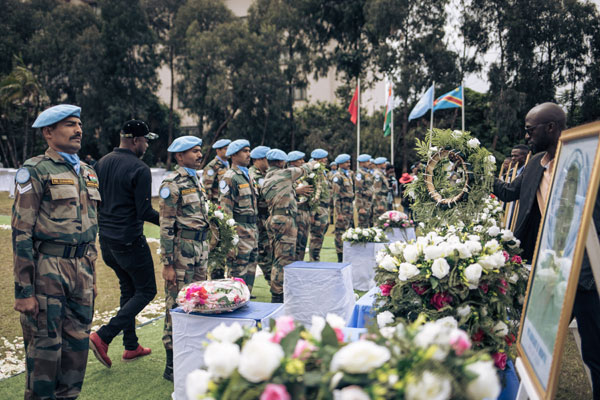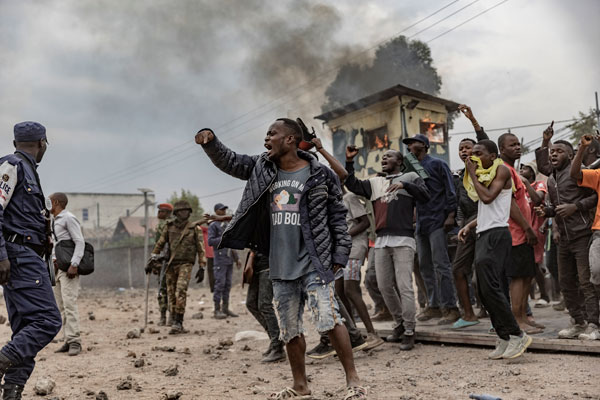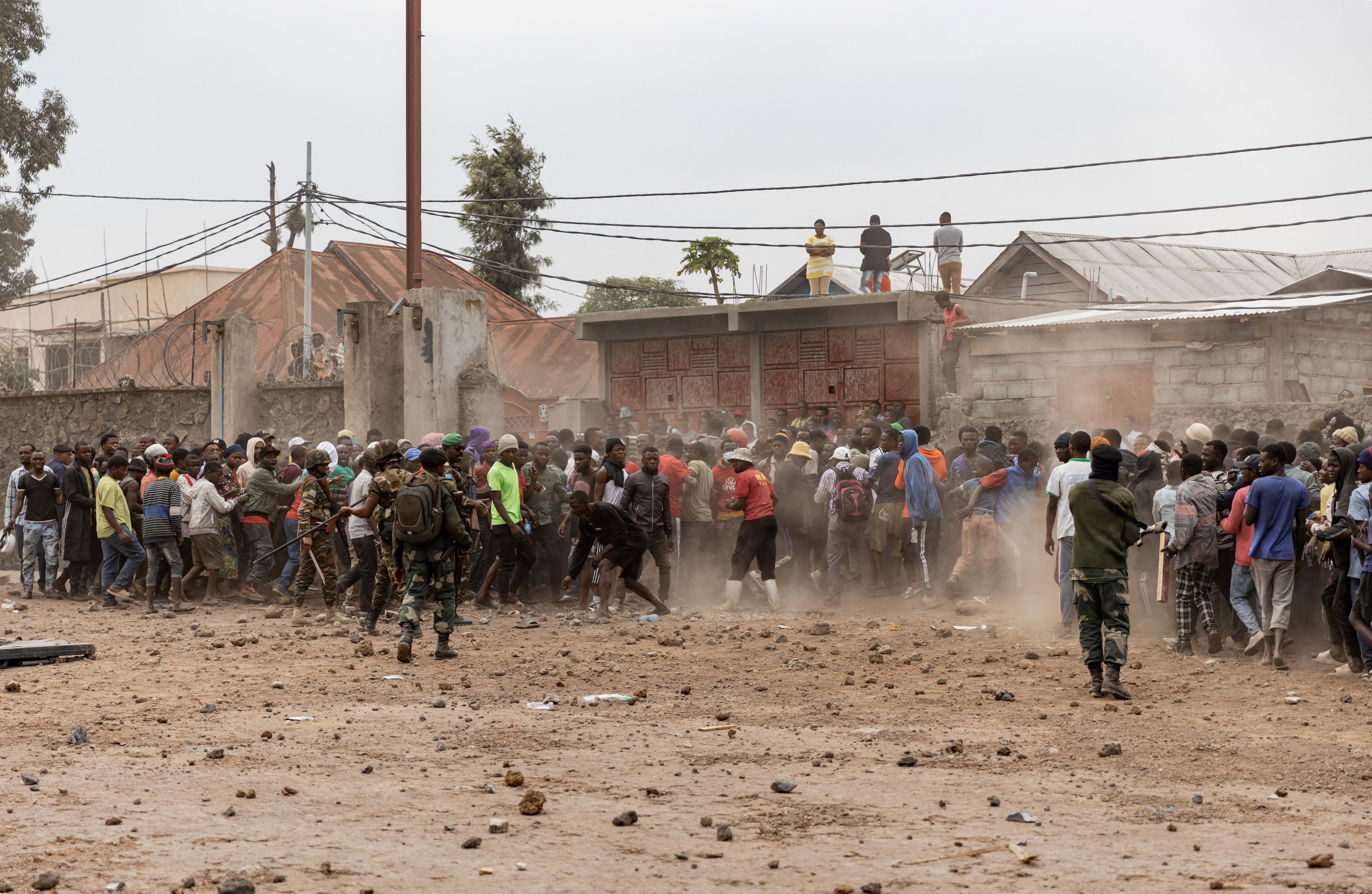Perennial insecurity fuels DR Congo's anti-UN protests

Indian military from Monusco, the U.N. mission in the Democratic Republic of Congo, attend a ceremony honoring peacekeepers who died during violent protests against Monusco, in Goma, on August 1, 2022. PHOTOS / AFP
What you need to know:
- Conflict has raged for three decades across eastern DRC, a mineral-rich region roamed by more than 120 armed groups, which regularly massacre civilians
Violent anti-UN protests that rocked eastern Democratic Republic of Congo last week, claiming 36 lives, reflect local anger at persistent insecurity in the turbulent region.
Conflict has raged for three decades across eastern DRC, a mineral-rich region roamed by more than 120 armed groups, which regularly massacre civilians.
Suspected rebel violence killed around 4,000 civilians in the eastern Congolese provinces of North Kivu and Ituri between 2020 and 2022, according to Kivu Security Tracker, a respected monitor.
Many locals view UN peacekeepers -- who first arrived in eastern Congo in 1999 -- as standing idly by while militias attack them.
With an annual budget of over $1 billion, the peacekeeping mission known as MONUSCO has more than 16,000 uniformed personnel, according to UN figures from November 2021.
Local anger boiled over on July 25, when anti-UN protesters ransacked MONUSCO bases in North Kivu's capital Goma. Demonstrations then quickly spread.
The following day, clashes in the town of Butembo led to the deaths of four peacekeepers, according to a government tally published on Monday. Nine civilians were also killed there.
At total of 36 people were killed over several days of unrest, the government said, including 13 civilians in Goma.
On July 31, peacekeepers also opened fire and killed three people during an incident on the Congolese-Ugandan border.
"It often happens that militiamen massacre women, children and elderly people 50 metres (164 feet) away from the Blue Helmets' positions," said Losuire Shabani of the pro-democracy movement Fight for Change in the eastern town of Beni.
Antoine-Roger Lokongo, a political scientist at Joseph Kasa-Vubu University in western Congo, said "everything is happening as if MONUSCO has received a mission to subjugate the DRC in complicity with neighbouring countries".
He accused Rwanda and Uganda of "creating and sustaining armed groups in the east".
Many in Congo believe that MONUSCO is a front for countries with evil designs on the central African nation. There is little to no evidence to support the idea.

Congolese demonstrators gesture during a protest against the UN peacekeeping mission MONUSCO in Goma on July 26, 2022.
MONUSCO was not immediately able to respond to questions from AFP.
However, its spokesman Mathias Gillmann regularly points out that the mission has lost some 400 staff serving in the DRC over the past 22 years, and that it intervenes alongside Congolese armed forces.
'Enemies of the republic'
Pro-democracy movements and some local politicians have been calling for MONUSCO to leave since 2019.
Speaking at a public meeting on July 15, weeks before the protests broke out, senate president Modeste Bahati called on the mission to "pack its bags" and claimed the DRC would defend itself.
Augustin Muhesi, a university professor in North Kivu, said the recent protests were "the consequence of speeches by politicians who pull the strings in the shadows".
"These speeches are poisoning the atmosphere of distrust that already existed between part of the population and MONUSCO."
Congolese President Felix Tshisekedi told his cabinet on Friday that "appropriate communication" should protect the population from "manipulators, enemies of the republic" who stir up anti-MONUSCO sentiment "to serve their own interests".
Jason Stearns, director of New York University's Congo Research Group, said it was "completely possible" that the anti-UN protesters were manipulated.
"But what is clear is that the mission has lost a lot of popularity," he added.
Muhesi believes the Congolese government must also take responsibility for popular anger.
"If MONUSCO is still in Congo, it's because the state is yet to escape its institutional fragilities," he said, explaining that Congolese security forces were too weak to bring peace to the east.





